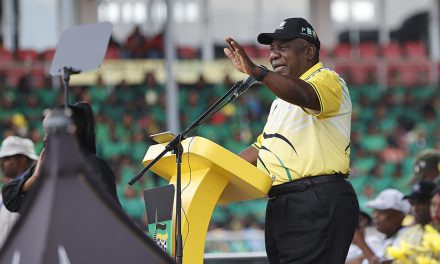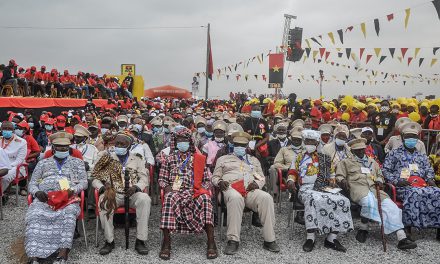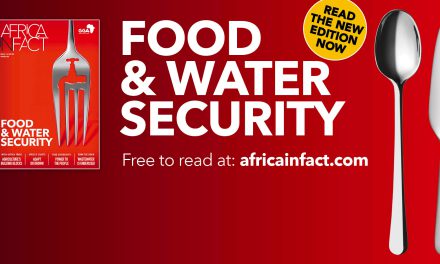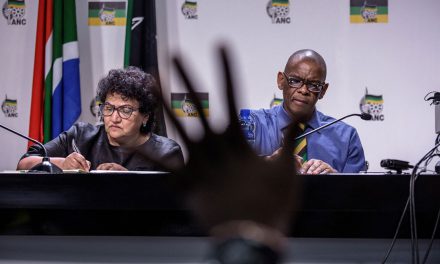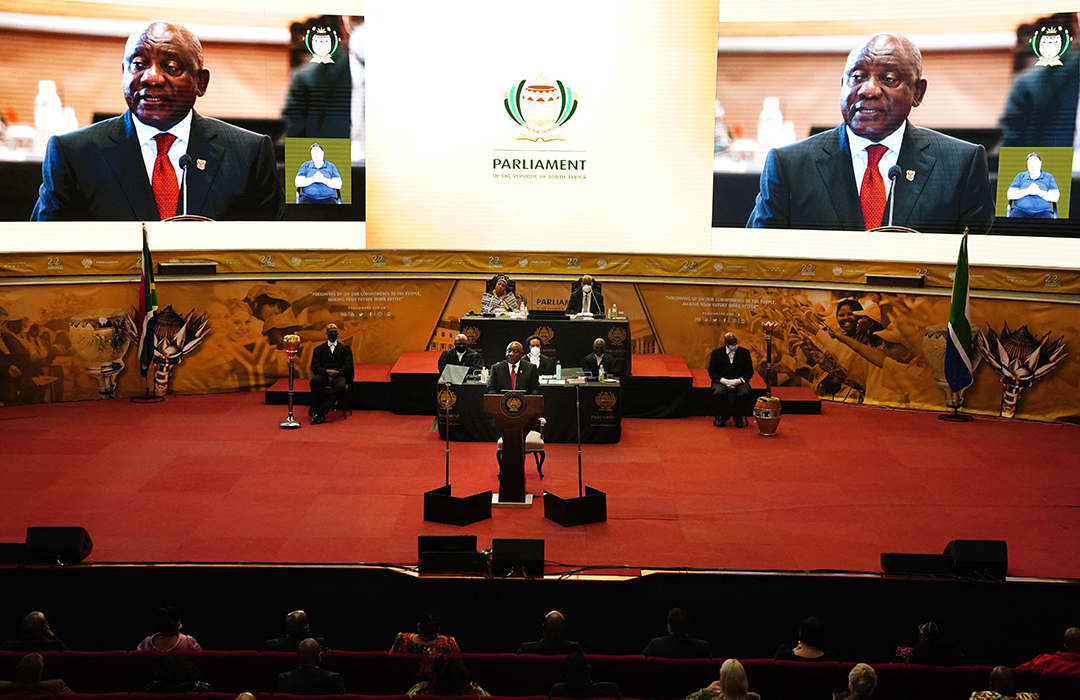
South African President Cyril Ramaphosa delivers his State of the Nation (SONA) address at the opening of the parliament in Cape Town, South Africa, 10 February 2022. Photo: Nic Bothma/AFP
As the president rightly acknowledged, the fact that the State of the Nation (SONA 2022) did not unfold in parliament is a useful analogy for the fact that our country is on fire, too often quite literally. Though perhaps not as acutely as it was in the July 2021 insurrection following former president Jacob Zuma’s arrest, the slow burn continues in the form of political instability, energy and physical insecurity, eye-watering corruption and intolerable youth unemployment.
Read MoreThe Harvard economic review that preceded the SONA provides a technocratic set of insights into the sheer state of the economic decay that characterises South Africa. To Ramaphosa’s credit, he acknowledges the challenges and does not shy away from them. That takes some level of courage. However, one still gets the sense that he appears to be commenting on these matters as some kind of external observer, rather than the one who is both head of state and head of the party that brought us this current dysfunction.
Nonetheless, a major SONA breakthrough is that the president recognised critical governance factors that require swift action (though he did not use that word). Governance, quite simply, is the process by which the authoritative allocation of resources occurs: who gets what, where, when and how. If public resources are allocated towards unproductive purposes (corrupt tenders, inefficient state-owned enterprises as conduits for patronage extension and private slush funds for the political connected), the state will slowly collapse. If, to the contrary, resources are allocated in a way that facilitates free, competitive and responsible private enterprise, then the blights of unemployment and poverty can be overcome.
As Ramaphosa rightly recognised, allocating resources effectively requires a capable state. Not only that, however; it also requires careful strategic manoeuvring to displace and crowd out those who threaten a genuine reform agenda. To recover from the utterly rampant corruption that characterised the Zuma years, a strong coalition of responsible players from civil society, the government and the private sector will have to methodically eliminate (figuratively) those who would destabilise and destroy our country. Ramaphosa rightly indicated that the constitution is a key institution, a commitment device that cannot be opportunistically attacked by those ministers and their acolytes who would apparently be quite content with the chaos that would ensue from abandoning the rule of law that this constitution holds as sacrosanct.
Brian Levy, one of the smartest minds in the development arena, wrote in 2011 that in governance contexts characterised by “a difficult combination of seeming openness, weak institutions and strong inter-elite contestation for power and resources”, progress could be achieved by creating pockets of effectiveness in key settings. These pockets are “narrowly-focused initiatives that combine high-quality institutional arrangements at the micro-level, plus supportive, narrowly-targeted policy reforms”. In order to achieve replicable pockets of effectiveness that would eventually transform the country, Levy introduces a game-theoretic model for coordination in which “productive networks” can trump “threat networks” to which “predators have access”. Predators are defined as those who would disrupt productive equilibria for short-term, corrupt and private gain at the expense of citizens.
Under a scenario where the actual predation threat is empirically smaller than the production coalition’s ability to succeed, but the perception is such that the predators will succeed, good governance is at risk but can be successfully repelled. The corollary is that if the predators’ perception is that they are not powerful enough to override the producers, successful collaborative governance ensues, and predation is crowded out. The counter scenario is where the predation threat is empirically stronger than the producers’ ability to override them. This becomes a real perception game, in which the producers have to succeed at giving the appearance of power they don’t have.
It is unclear exactly which scenario empirically characterises South Africa. We have a judiciary that has stood – sometimes man alone – against a rapacious predation network. Ramaphosa did not reference the highly improper Judicial Services Commission process by which the new chief justice is going to be recommended, but this is a real threat to the rule of law, especially as it is aided by those within the ruling party who desire to eliminate Ramaphosa from the ANC presidency at the end of 2022. At the same time, the president managed to stand firm against Ace Magashule (an arch “predator”), and the Zondo Commission findings are being released thick and fast. The bottom line is that Ramaphosa has to give the impression that he is credibly able to hold those who have looted to account, and put them in orange overalls. Time is running out.
Without sending credible signals that the evident corruption will be dealt with, it is extremely difficult to attract the kind of investment required to address all the other problems that the president highlighted. Kicking that can down the road to June may prove too late. In the meantime, serious National Prosecuting Authority capacity needs to be built up to execute on the accountability promise.
The other empirical reality is that the state of the economy is dire. The president did not directly mention the UNU-Wider working paper lead-authored by Ricardo Hausmann and released shortly before SONA. It shows that for as long as unemployment continues to climb, private sector investment falls, and the public sector wage bill far exceeds personal income tax revenue, the state is in a precarious position. This is only compounded by Eskom’s utter failure and indebtedness to the tune of half our country’s annual budget (R450 billion at least of just over R1 trillion). These factors combine to create ripe soil for the predators to continue to incite violence, call for inflammatory changes to the constitution and promise what they cannot deliver for the sake of short-term opportunistic rent gains for themselves.
In conclusion, the risk is that we are in scenario two, where the actual predation threat outweighs the empirical ability of the producer network to stand firm and attract the required investment. The fragile coalition of those committed to good governance therefore has to stand firmer than ever, and do everything possible to minimise the predation threat while strengthening the perception that predators will credibly soon be dressed in orange overalls. That way, successful collaborative governance will accrue, even if it is at risk for the foreseeable future.
This article originally appeared in Business Day.
[activecampaign form=1]
Dr Ross Harvey is a natural resource economist and policy analyst, and he has been dealing with governance issues in various forms across this sector since 2007. He has a PhD in economics from the University of Cape Town, and his thesis research focused on the political economy of oil and institutional development in Angola and Nigeria. While completing his PhD, Ross worked as a senior researcher on extractive industries and wildlife governance at the South African Institute of International Affairs (SAIIA), and in May 2019 became an independent conservation consultant. Ross’s task at GGA is to establish a non-renewable natural resources project (extractive industries) to ensure that the industry becomes genuinely sustainable and contributes to Africa achieving the Sustainable Development Goals (SDGs). Ross was appointed Director of Research and Programmes at GGA in May 2020.


